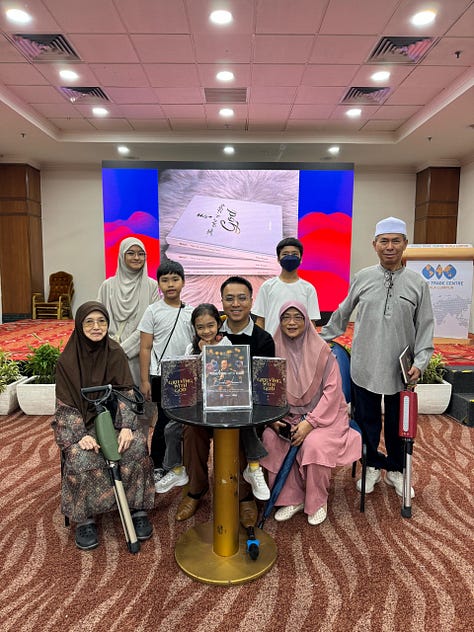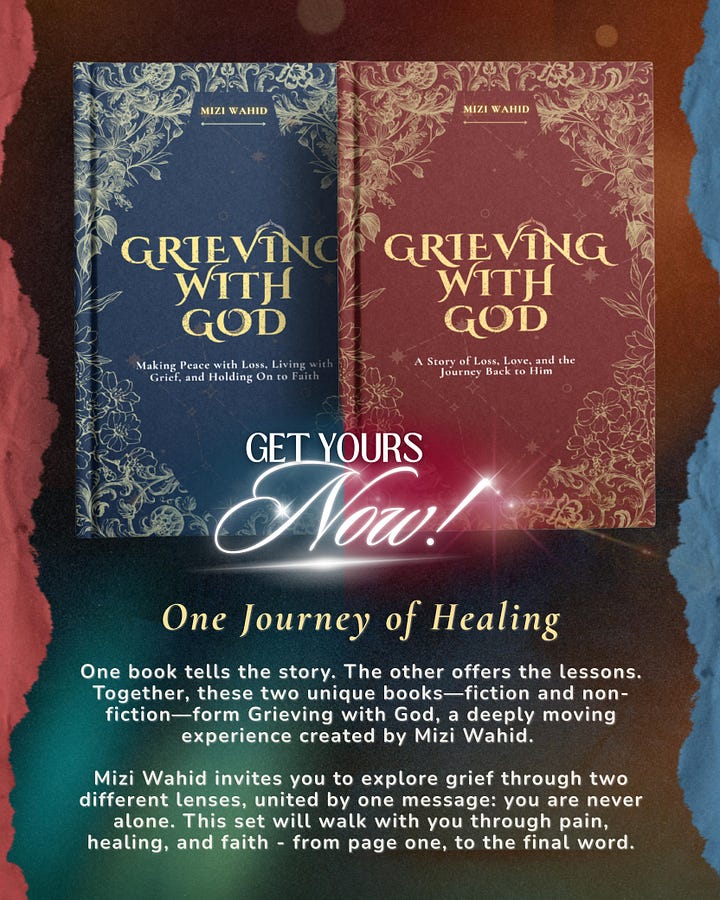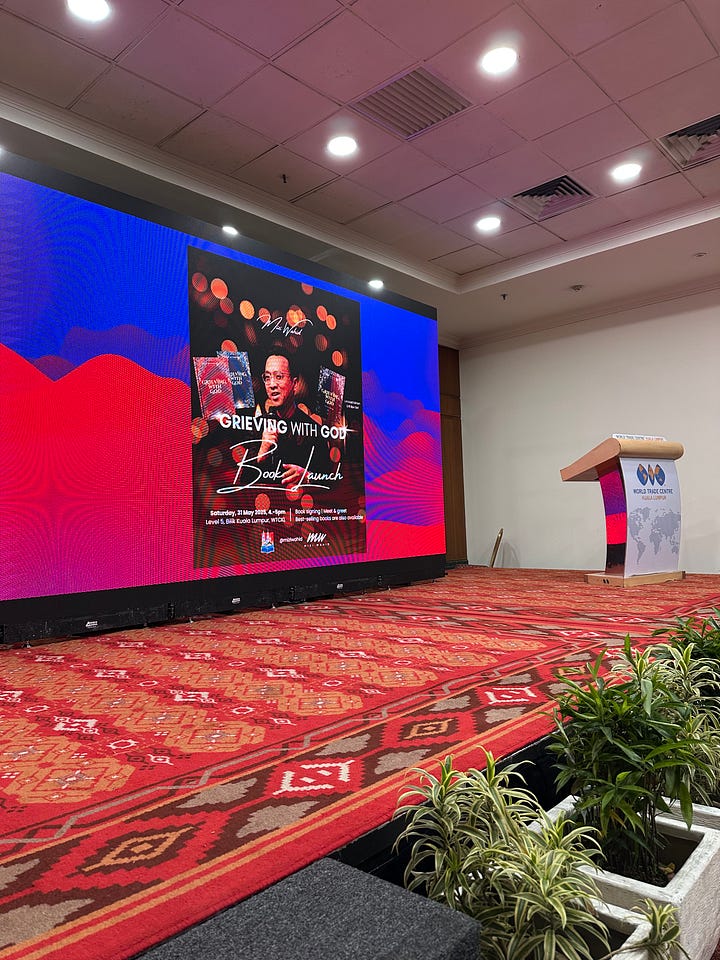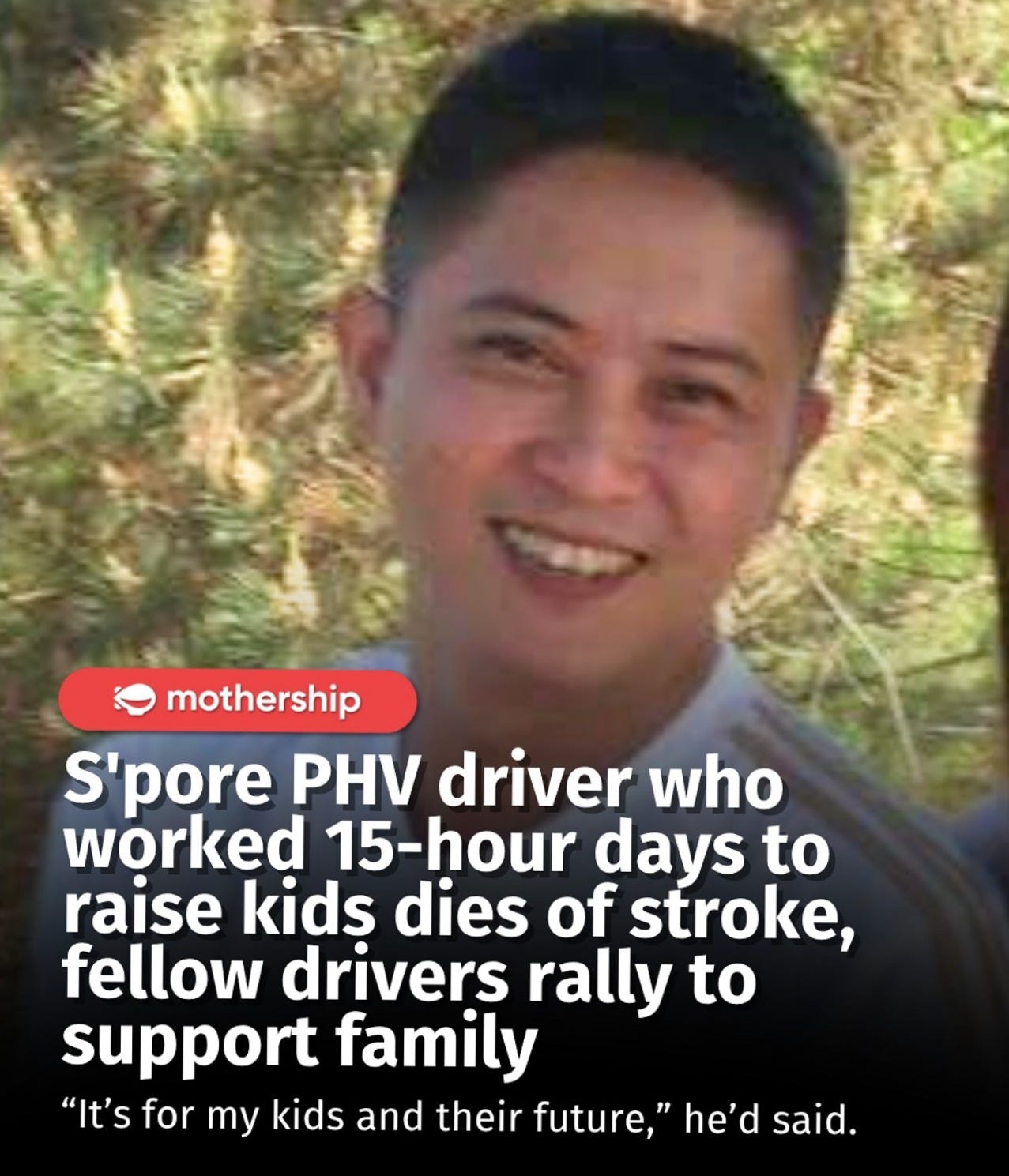Why Feeling 'Fine' Might Be the Real Problem
The Weary Heart | #3
You’ve said it. I’ve said it. We’ve all said it.
"I’m fine."
It rolls off the tongue so easily. Clean. Controlled. Undeniably convenient. It stops further questions, ends the conversation, and masks what’s really going on underneath.
But here’s the thing:
Sometimes “I’m fine” is the most dangerous lie we tell ourselves.
Not because we want to lie.
But because we’ve been trained to cope, to survive, to keep moving.
Even when our chest feels heavy.
Even when we haven’t taken a proper breath in days.
Even when we wake up already exhausted.
Even when our hearts are breaking but our schedules don’t allow it.
So? We show up: To work. To meetings. To dinner tables.
We smile, we laugh, we nod enthusiastically. We keep it going.
But inside?
Well, without realising it, we’re numb on the inside.
We’ve become so good at holding it together that even we start believing we’re okay.
That “fine” is enough. That it’s safe. That it means we’re doing well enough to avoid everyone around us showing concern about our well-being — which we hate.
But here’s what no one tells you:
Your body doesn’t speak in full sentences. It speaks in signals.
And when you repeatedly say, “I’m fine” without checking in deeper,
your body starts believing the script too.
So it buries the anxiety.
It stiffens the neck.
It tightens the jaw.
It shortens your breath.
It makes you restless at night, and foggy in the morning. Sigh.
Because the truth didn’t go anywhere.
It just relocated—into your body.
The Performative Strength Culture
There’s a dangerous kind of strength that looks admirable from the outside but slowly empties you from within.
It’s the kind that tells you:
Don’t show weakness.
Don’t break down.
Don’t cry.
And most importantly, don’t make others uncomfortable with your pain.
Maybe you’re a senior manager in a high-pressure role. Your team depends on you. You lead with calm and clarity, mashaAllah—even when your own mind feels like a warzone. How do you do this? You suppress the fatigue, the worry, the loneliness. Because you think showing it might make people lose trust in you.
Or maybe you’re a business owner, waking up each day with ten fires to put out. You wear the badge of 'resilience' because that’s what entrepreneurs do. But behind every client pitch and staff meeting is a soul wondering when it’s your turn to feel supported.
Or maybe you’re a parent or caretaker. You wake up earlier than everyone, sleep later than everyone, and in between those hours, you’re managing schedules, solving conflicts, tip-toeing on eggshells carrying others’ emotions—sometimes with zero space to feel your own.
So instead of being real, we become resilient.
We don’t allow ourselves space to feel, only to function.
But you can only fake stability for so long. Eventually, what you suppress leaks out in other ways:
Snapping at your kids over a dropped bowl of cereal.
Losing motivation for things you used to enjoy, like cycling or baking.
Suddenly feeling overwhelmed by a simple to-do list.
These are all signs of emotional debt.
And just like financial debt, it compounds over time.
And slowly, “I’m fine” turns from a temporary state into a lifestyle.
What Does ‘Fine’ Even Mean Anymore?
The word has become a default setting.
A placeholder.
A mask.
“I’m fine” doesn’t mean you’re well.
It means you’re functioning at minimum capacity without raising alarms.
It means you haven’t had the space or safety to say what’s really going on.
I remember speaking to a friend who works in HR. She said,
“My job is literally to check in on everyone’s well-being. But no one ever checks on mine. And I’ve stopped expecting them to.”
Sad huh? She smiles all day. She’s composed, respected. But she’s also deeply tired.
Another friend, a father of four (like me), told me he gets home each day with no words left. “I sit in the car outside the house for five minutes before walking in. Just to collect myself. Because at home, I need to be ‘okay.’ I need to be strong.”
But here’s a gentle truth for all of you still reading this:
If you’ve been "fine" for too long, you might not even realise how much weight you’re carrying until something small finally breaks the dam.
And it doesn’t have to be that way.
There is a deeper kind of peace that begins with truth.
And please remember this my dear friends, truth doesn’t always roar. Sometimes it whispers:
“You’re tired.”
“You need help.”
“You don’t have to carry this alone.”
The longer we ignore those whispers, the louder the breakdown becomes. I’ve heard stories of people collapsing at work and every one of their colleague was surprised how it could happen so out of the blue, especially when they’re always on-the-ball, smiling, and appearing “fine”.
Read this recently, and it’s really sad that it happened. He is a dedicated father, who did everything for his two kids. And I feel for them and their sudden loss. And now they’ll never get to spend their adult years with him anymore. Could this have been prevented? Perhaps.
So if you’re not careful of the whispers or if you keep ignoring them, I fear that one day it won’t be so subtle. It shows up in the form of burnout, or disconnection, or in the sudden urge to leave everything behind.
So before the storm comes, we must pay a bit more attention to ourselves.
The Emotional Cost of Silence
There’s an emotional cost to pretending you’re fine.
You miss out on opportunities for real connection.
You keep the people who care about you at arm’s length.
And you send the wrong message to yourself: that your truth is too inconvenient to be heard.
That’s the hardest part, isn’t it? The belief that if we were fully honest about what we feel, we’d be a burden.
But the people who truly love you? They want to know. They need to know.
Because vulnerability is not weakness. It’s access. It’s the bridge that lets others walk into your life and say,
“I see you. I hear you. You’re not alone.”
So What Can You Do?
Let me offer a few ideas. This isn’t advice. Just things that have helped me when I’ve been stuck in the grey zone of "fine" for far too long. And if it’s helpful, alhamdulillah.
1. Start answering honestly — but only with safe people
You don’t have to tell everyone you’re struggling. But you should tell someone. One person. The one who won’t try to fix you but will sit with you. Listen without rushing. Someone you trust enough to say,
"Actually, I’m not fine today."
Even just saying that aloud breaks the illusion. It gives your nervous system permission to exhale. Seriously, you’ve got to try it. It tells your inner self: You don’t have to carry this alone.
And here’s something I’ve learned: the more you practise saying the truth in safe spaces, the more courage you develop to be truthful with yourself.
2. Watch your body for signals that your mouth refuses to say
Sometimes our minds are in denial, but the body remembers everything. Are you clenching your jaw at night? Are you sighing a lot without noticing?
There was a period when I remembered a few of my staff noticing me sighing loudly a lot during the day. It was a very stressful period to say the least. But it was a good reminder that I was dealing with a lot and needed some time out, and someone to talk to simply to unplug and let all the stressful energy out of my system.
These are signs. Not weaknesses. Not failures. Just your body saying, “Hey, I need a little attention too."
Also, take it from someone in his early 40s (ehem), start treating physical symptoms like emotional messengers.
Because they usually are.
And if you’re unsure where to start, run a quick check-in:
What part of my body feels tense right now?
Am I having one too many migraines this week?
Have I lost my appetite lately?
Am I losing sleep these past couple of days?
Friends, awareness is the beginning of all healing.
3. Write down this one question each night: “What did I suppress today?”
This one can sting.
Because sometimes you realise how many moments you swallowed your truth just to keep the peace.
Just to keep performing. Just to make it to tomorrow.
But writing it down gives the truth a place to land.
And once it lands, it doesn’t need to be buried anymore.
Let it come out messy. Unfiltered. Let it make sense later. The act of writing is already a form of emotional release.
And if you can’t write a full entry, just write one sentence.
Even a sentence like “I hated pretending today” can set you free.
The truth is, being "fine" isn’t bad. It’s just incomplete.
You deserve more than fine.
You deserve to feel deeply ALIVE, not just survive.
You deserve days where you’re at peace, not pretending.
And if no one has told you lately:
It’s okay to not be okay.
It’s okay to feel heavy.
And it’s okay to say, “I’m not fine, BUT I’m trying.”
That alone is strength. Real strength.
And I’m proud of you for being here.
Always be honest with yourself.
We heal a little more each time we tell the truth.
With you in this journey,
Mizi Wahid
PS: I just launched my new books! Alhamduillah. It was during the PBAKL 2025. In the presence of my parents, in-laws, wife and kids. So grateful.





In Malaysia, you may start to enquire with MPH Bookstores everywhere.
In Singapore, you should be able to purchase after 8 June inshaAllah.
In Brunei, they are processing the formal checks as usual. Hope it’ll clear soon!




